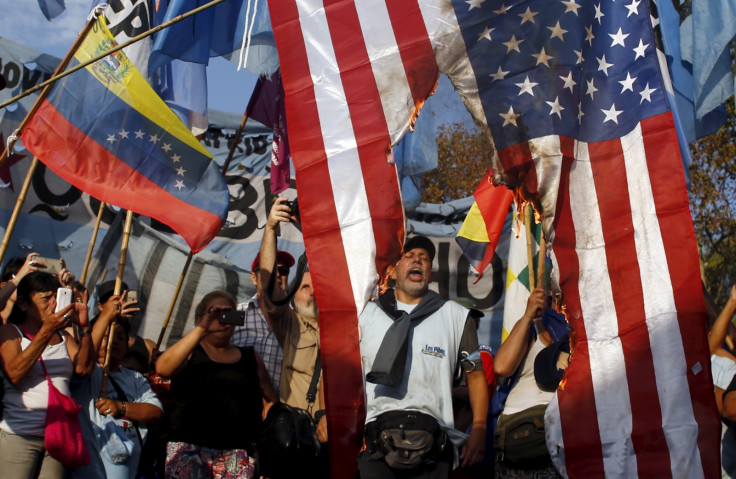US-Venezuela relations: Rival nations initiate quiet diplomacy to ease tensions

Rival nations Venezuela and the US have initiated quiet dialogue in an attempt to smooth over tensions, a senior US administration official revealed to the New York Times.
According to the Times, the latest development in the strained relationship may be a sign that the US's improved relations with Cuba may be spreading to other diplomatic relationships in the Latin America. However, the official warned that the talks are in the early stages.
According to the Times, Venezuelan officials claim they want to repair relations with the US. The two hit a snag in March when Caracas ordered the US to cut its embassy staff and Washington responded by imposing sanctions on Venezuelan officials.
The first move was made by Venezuelan President Nicolas Maduro, who in March requested a "direct channel of communication" with US President Barack Obama and the State Department, the official told the Times.
"He realised that if we can talk to the Cubans, we can talk to him," the officials told Reuters. He added, "We approached it very carefully because we had seen this before, but there was also US concern that the relationship was reaching such a dangerous point that it risked breaking completely."
To continue the dialogue, Republican Senator Bob Corker is in Venezuela in a fact-finding mission that includes meeting with opposition and senior government figures. Venezuela's parliamentary chief Diosdado Cabello has also be included in the talks. Cabello has been accused of possible drug trafficking and money laundering, although he denies those claims.
According to the US official, the talks have divided into two segments on points the countries agree on and those they do not. The official added that during a 14 June meeting in Haiti, the US side asked Cabello to schedule a parliamentary election this year and to release political prisoners.
US officials noted that if opposition leader Leopoldo Lopez, who is jailed and enduring a hunger strike, died than the talks between the US and Venezuela would end. Capello allegedly did not set a date for the election during the meeting, however, the country's election authority later set the date for 6 December.
Lopez ended his hunger strike but continues to be jailed, the Times reported.
The meeting in Haiti, which involved Tom Shannon for the US, did note one win. Venezuela agreed to contribute funding for the election process in Port-au-Prince. In its agreement, the Latin American country agreed to fund security and logistics for the UN-coordinated programme in Haiti in the August polls.
The times noted that the talks did not begin for real until April, when Obama and Maduro met briefly in Panama at the Summit of the Americas.
© Copyright IBTimes 2024. All rights reserved.






